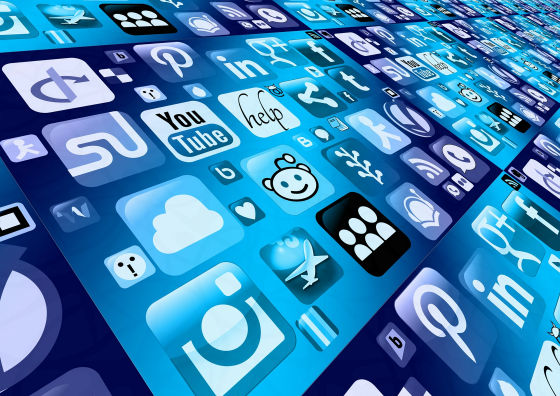What is a new web world 'Dweb' that makes individuals connect with each other without huge administrators such as Google and Facebook?

Modern web services, such as Google searching for search services and accumulating large amounts of personal information, manage structural information on freedom of expression and privacy because huge service providers manage access to information I am holding it. In order to solve these problems, a technical idea of " Decentralized Web (DWeb) " which is a decentralized web where individuals are connected via a network without requiring "huge organizers" has appeared.
Decentralisation: the next big step for the world wide web | Technology | The Guardian
https://www.theguardian.com/technology/2018/sep/08/decentralisation-next-big-step-for-the-world-wide-web-dweb-data-internet-censorship-brewster-kahle
When it is reported that Google is developing a censorable search engine aiming for re-entry in China , in the US · San Francisco, bypassing a huge service that functions as a gatekeeper on the Internet such as Google and Facebook, A conference " Decentralized Web Summit (DWeb Summit)" exploring "a new form of the World Wide Web" was held hosting the internet archive. 800 DI developers and groups participated in the DWeb Summit to share their ideas and Tim Bernards-Lee, who created the World Wide Web for the conference, also said that they participated.
The cause of the DWeb concept being raised lies in the existence of a huge service that dominates the modern Internet. The former web started with a desktop PC connected and talking to each other, but from the time the word "Web 2.0" came out, "the centralized service provided by large companies such as Google, Facebook, Microsoft, Amazon, Communication was carried out in a form via ".

For example, the SNS service where individuals are connected to each other is connected on a platform called Facebook, so to speak, it is becoming "exchanges only inside the garden." In this "centralized" web world, users' information is aggregated and stored in the headquarters, so there is a danger of personal data being leaked due to cyber attacks due to hacking. Also, if the centralized service goes down there is a risk of losing communication means and saved data. In addition, the dangers of censorship by the government and others are obsessed, and it is inevitable to "privately sold out" that personal information gathered is used as a target advertisement.
In order to solve the evils of the Web 2.0 generation like this, we created the distributed computing "DWeb" on the web. The difference between the conventional web and the DWeb is that communication based on peer-to-peer where terminals are connected to one another is fundamental. Second, computer terminals connected by peer-to-peer have a big difference "not only to request but to provide service". In other words, by utilizing the HTTP protocol, users will not be able to access information stored on a specific server, but will also serve as a medium for users to distribute distributed data.
The basic technique which is the technical background of this DWeb idea is "block chain".
Movie that can understand "Block Chain" in 2 minutes - GIGAZINE

What is "block chain"? And why are they becoming commonly used? - GIGAZINE


It is DWeb 's idea to apply block chains that enabled virtual currency (cryptographic digital currency) that generated decentralized currencies, excluding centralized currency issuers, also in the web world. In the DWeb that stores "information" in a distributed manner rather than gathering it in one place with a block chain, "administrator" restricts access to information in order to "manage" or "control" the information It will be impossible.
Programming under the decentralized DWeb philosophy has already begun. For example, " OpenBazzaar " of distributed flea market, " Graphite Docs " which can be an alternative to Google Documents, " Textile Photos " which can be an alternative to Instagram, " Matrix " which can be a substitute for Slack and WhatsApp, Can be an alternative to YouTube " DTube ", a true social network service different from the existing SNS service, " Akasha " and " Diaspora ", a browser for peer-to-peer web " Beaker Browser " etc. are born.
With DWeb without a centralized service provider, the traditional advertising business does not function. Therefore, DWeb requires another economical mechanism, and the key to that is building a micropayment system that enables small settlement. If there is a mechanism to directly pay the price for using the service, the creator can earn income without resorting to the advertisement system, so creative activities will become active and eventually the content usage fee will be expected to be absolutely lowered.
Also, in the world of DWeb underpinned by block chain technology, passwords to secure identity are not required. To be precise, if there is only one guarantee such as ecological certification that identifies an individual, it will not be necessary to use a long and difficult complex password.

However, DWeb does not have an administrator, but it may be a harmful effect. For example, you can not make a "delete request" even if wrong information is issued. This may greatly infringe on "forgotten rights" which is being acknowledged mainly in Europe in recent years. Also it is difficult to delete information about child pornography and crime.
Considering the advantages and disadvantages of DWeb, "If DWeb functions in a mechanism different from the current web, take advantage of its advantages and focus on 'what is impossible with a centralized system' It is also thought that it should be adjusted ".
Related Posts:
in Note, Web Service, Posted by darkhorse_log






